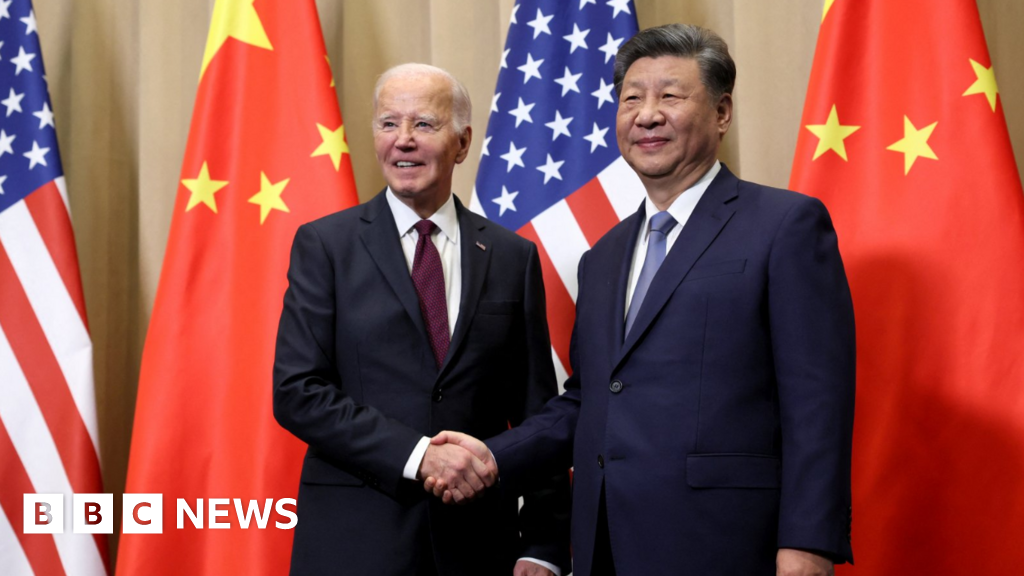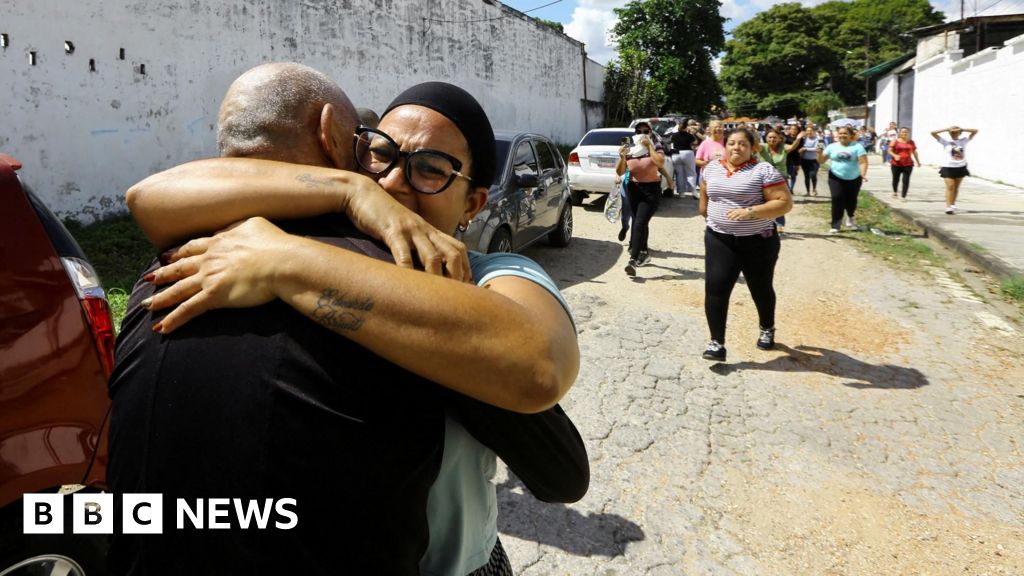ARTICLE AD BOX
By Yolande Knell & Rushdi Abou Alouf
BBC News, Jerusalem & Gaza City
Image source, Getty Images
Image caption,Hamas has been criticised by human rights groups for its suppression of civil liberties
Hundreds of Palestinian activists have been taking part in a rare online event strongly criticising Hamas governance of the Gaza Strip.
They Kidnapped Gaza began as an audio discussion on Twitter on Thursday.
"Imagine your one-month-old son dies because of the cold. Imagine your son dying because there is no electricity, no money, no wages and no home," said Mahmoud Nashwan.
"Injustice will fall and every oppressor will fall," added the 32-year-old engineer from Gaza, who now lives in Belgium.
The three-hour long, live conversation was organised by five Gazans who left the Palestinian territory after joining the We Want to Live protests which were violently suppressed in March 2019.
Living conditions in Gaza are dire. There is a severe lack of water, poor sewage treatment and long daily power cuts. Some 67% of the youth workforce are unemployed - with the highest figures among graduates.
The economy has been badly hit by the pandemic and an 11-day conflict between Israel and Hamas militants in May 2021. However, it is unusual to hear residents voice any complaints about those in charge out of fear.
"Hamas has billions of dollars in investments in many countries, while people [in Gaza] starve to death and migrate in search of work," said another activist, Amer Balosha, during the social media event.
Image source, Getty Images
Image caption,Critics say Hamas is not spending its money on rebuilding Gaza after the war with Israel last year
He highlighted the plight of more than 100 Gazans, now imprisoned in Turkey after trying to travel illegally to Greece in search of new lives in Europe.
"Hamas, which is responsible for their efforts to emigrate due to its policies, did not intervene to release them," continued Mr Balosha, a 29-year-old law graduate of Al-Azhar University.
He now lives in Istanbul after being arrested by Hamas police for his role as an organiser of the 14 March Movement, which was instrumental in the protests in 2019.
The Palestinian Islamist group, Hamas, took full control of Gaza in 2007, ousting Palestinian Authority (PA) security forces in days of bloody fighting, a year after Hamas won the Palestinians' last parliamentary election.
Following its takeover, Israel and Egypt imposed a tight blockade against the militants which has squeezed the Palestinian territory. Internationally, Hamas is widely seen as a terrorist group.
About two-thirds of the 2m people in Gaza are aged under 25. Most have never left the strip - which is just 25 miles (40km) long and up to seven miles (11km) across - because of tight travel restrictions.
Demonstrations suppressed
In 2019, demonstrations over the high price of food and lack of jobs brought hundreds of Gazans out on the streets of city centres and refugee camps. They were of a scale and intensity that had not previously been seen under Hamas's iron rule.
Videos shared online showed security services hitting people and shooting live ammunition into the air to disperse the crowds.
Hamas accused its political rival, Fatah, which dominates the PA, of being behind the protests. However, many young Palestinians criticise both factions, accusing all of the Palestinian leadership of ignoring their daily strife.
A Hamas spokesman did not respond directly when the BBC asked for his reaction to the They Kidnapped Gaza virtual event and hashtag still being used on Twitter.
Instead, he pointed out that a new hashtag being used in criticism of the Palestine Liberation Organisation (PLO), which began circulating in reaction, had been more popular. The PLO is headed by PA President Mahmoud Abbas.
Supporters of Hamas have also been quick to attack its critics.
"They Kidnapped Gaza and made it a centre of resistance and challenge to the largest power in the world," a loyalist, Wael Abu Omar, wrote in response on Twitter.
"They kidnapped Gaza and it became a hotbed for striking Tel Aviv, Haifa and occupied Jerusalem with rockets. They kidnapped it and Gaza became the defending champion of Jerusalem and Sheikh Jarrah [a politically contentious district in Jerusalem linked to the outbreak of the May war]."
Gaza analysts say Hamas officials are unlikely to have been badly rattled as the latest criticism has been concentrated on an online platform not widely used by Palestinians. But it shows the voices of protests still have a way and a means of getting out.
You may also be interested in:
Two children from Gaza City and Israel describe their experience of the Israel-Gaza conflict

 2 years ago
22
2 years ago
22








 English (US)
English (US)